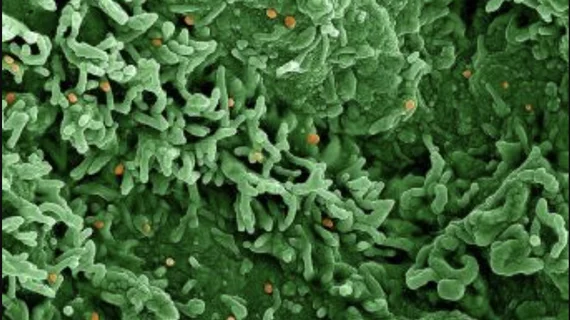The Department of Health and Human Services (HHS) has declared monkeypox a public health emergency (PHE), enabling more federal funds to be thrown at the outbreak.
HHS Secretary Xavier Becerra made the announcement Aug. 4 in recognition of the continued rapid transmission of monkeypox in the U.S. and globally. The move is part of the Biden-Harris administration's strategy on monkeypox, which includes scaling the production and availability of vaccines, expanding testing capacity, reducing burdens in accessing treatments and reaching out to stakeholders and members of the LGBTQ+ community. The U.S. reported more than 7,100 cases as of Aug. 5, according to the Centers for Disease Control and Prevention (CDC). New York has the highest number of cases in the nation, with 1,748 cases.
The move by HHS also comes after the World Health Organization (WHO) declared monkeypox a public health emergency at the end of July.
The disease is characterized by a rash that can look like pimples or blisters, fever, headache, muscle aches, swollen lymph nodes, respiratory symptoms and more. The CDC recommends that people who have been exposed to monkeypox and those who are at high risk of being exposed should be vaccinated for the virus.
“Ending the monkeypox outbreak is a critical priority for the Biden-Harris Administration. We are taking our response to the next level by declaring a public health emergency,” said Secretary Becerra. “With today’s declaration we can further strengthen and accelerate our response further.”
By declaring a PHE, the federal government can also implement more data sharing, and 51 jurisdictions have already signed data use agreements to provide the CDC with information related to vaccine administration. The PHE declaration also authorizes the Centers for Medicare and Medicaid Services (CMS) to collect testing and hospitalization.
HHS has shipped more than 602,000 doses of the JYNNEOS vaccine to states and jurisdictions, up from 266,000 last week. The agency has allocated 1.1 million doses and is making more available as current supply is used. HHS will accelerate the delivery of another 150,000 doses to arrive in the U.S. next month.
According to the CDC, monkeypox spreads through close, personal, often skin-to-skin contact. The LGBTQ+ community has been particularly impacted by the spread, though the virus can also be spread by touching objects, fabrics and surfaces that have been used by someone with monkeypox and through respiratory secretions. It can also be spread from infected animals. Scientists are still researching other ways the virus could be spreading, such as when someone shows no symptoms.

